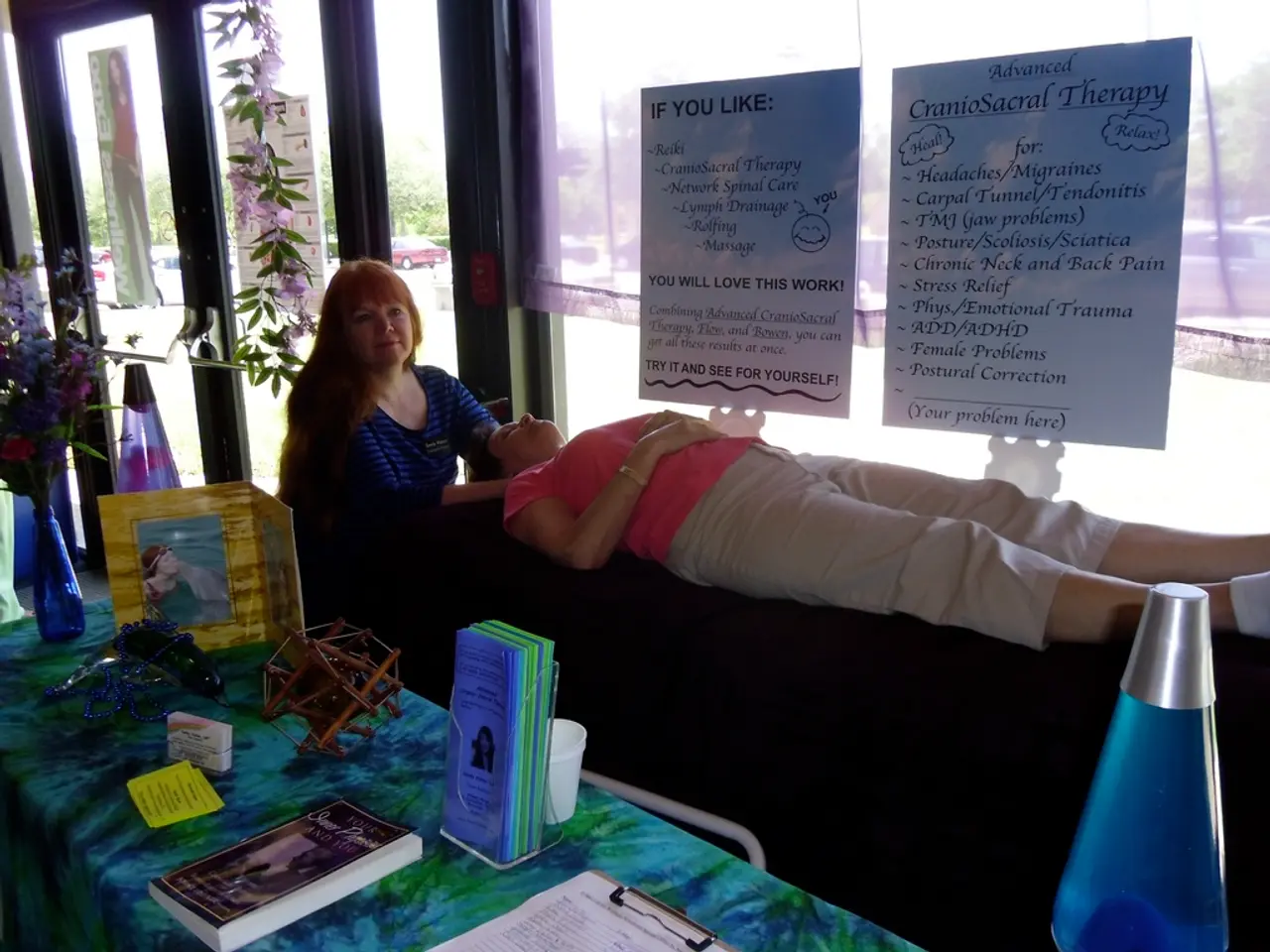Wolff-Parkinson-White Syndrome: Understanding Its Origin, Signs, and Remedies
In a heartbeat, let's delve into the world of Wolff-Parkinson-White (WPW) syndrome, a heart condition that affects approximately 1 to 3 people out of every 1,000. This condition is primarily caused by an extra electrical pathway, known as an accessory pathway, in the heart. This abnormal pathway allows electrical signals to bypass the normal conduction route between the atria and ventricles, leading to episodes of rapid heartbeat (tachycardia) and arrhythmias.
WPW is typically a congenital condition, meaning individuals are born with it, although symptoms may not present until later in life. Symptoms of WPW syndrome can occur at any age and include chest pain, shortness of breath, dizziness, and fainting. In older children and adults, these symptoms can also include dizziness and fainting, palpitations, poor endurance, and tiring easily during exercise. Infants with WPW syndrome may show signs such as rapid breathing, inactivity, poor appetite, lethargy, and rapid heartbeat.
In more severe cases, a person may experience other symptoms such as confusion, seizures, and loss of consciousness. Periods of tachycardia can begin suddenly and last for less than a minute, or they can persist for several hours. In severe cases of WPW syndrome, sudden death is possible.
From a genetic standpoint, mutations in the PRKAG2 gene have been strongly associated with familial WPW syndrome. PRKAG2 encodes a subunit of AMP-activated protein kinase (AMPK), and mutations here can lead to a spectrum of cardiac conditions including hypertrophic cardiomyopathy and WPW syndrome. These mutations cause abnormal cardiac muscle metabolism and conduction system abnormalities, resulting in the formation of accessory pathways and associated arrhythmias.
WPW syndrome can also occur alongside other inherited conditions such as congenital long QT syndrome, which involves mutations in ion channel genes, though this is less common. Up to 20% of infants with WPW syndrome also have a heart disease, often Ebstein's anomaly.
When it comes to treatment, stimulation of the vagus nerve can slow down a fast heart rate in WPW syndrome. In some cases, more invasive procedures may be necessary to prevent future episodes. One such procedure is Radiofrequency ablation (RFA), a procedure in which a heart specialist damages or destroys the extra electrical pathway in WPW syndrome, preventing future episodes.
If vagal maneuvers do not normalize the heart rhythm, a doctor may inject an antiarrhythmic drug to bring the heartbeat back to normal. Some vagal maneuvers, such as bearing down, massaging the neck, holding an ice pack on the face, gagging, or forceful coughing, can help correct a rapid heartbeat in WPW syndrome. Some medications can also help prevent further episodes of WPW syndrome, especially in people who do not want to undergo RFA or who cannot have it for some reason.
In rare instances, WPW syndrome can lead to a cardiac arrest. However, with proper understanding, early detection, and timely treatment, the prognosis for people with WPW syndrome is generally good. If you or someone you know is experiencing symptoms of WPW syndrome, it is crucial to seek medical attention immediately.
References: [1] Moss AJ, McKenna WJ. The genetics of Wolff-Parkinson-White syndrome. Heart Rhythm. 2010;7(10):1270-1277. [2] Shen WK, Wang J, Zhang X, et al. PRKAG2 mutations in familial Wolff-Parkinson-White syndrome. Circulation. 2007;116(18):2080-2087. [3] Wit T, Brugada P. Wolff-Parkinson-White syndrome: clinical, genetic, and therapeutic aspects. Circulation. 2001;103(18):2336-2342. [4] Priori SG, Corrado D, Schwartz PJ, et al. HRS/EHRA/APHRS expert consensus statement on the diagnosis and management of patients with ventricular arrhythmias and the prevention of sudden death due to inherited arrhythmias—executive summary: a report of the Task Force on Diagnosis and Management of Patients with Ventricular Arrhythmias and the Prevention of Sudden Death Due to Inherited Arrhythmias of the European Heart Rhythm Association (EHRA), Working Group on Sudden Cardiac Death of the Heart Rhythm Society (HRS) and the European Society of Cardiology (ESC). Europace. 2013;15(12):1650-1691.
In the realm of science and medical-conditions, WPW syndrome, a congenital heart condition, can cause health-and-wellness concerns such as dizziness, especially in older children, adults, and even infants. This syndrome, which involves an extra electrical pathway in the heart, may also lead to cardiovascular-health issues like tachycardia and arrhythmias, potentially severe enough to cause sudden death.




